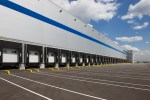Undoubtedly, having an adequate work environment can have a big impact on employee motivation and productivity, while a workspace that is ill-fitted to the needs of your workers can hurt your business on the long-term. That’s why it’s important to choose your corporate home wisely, taking into account the needs of your employees and the overall purpose of your business. We wanted to see just how the process of finding the right office space unfolds for small-to-medium-sized businesses, and which are the most important factors to be considered when making a move.
Is the Co-Working Space a Suitable Long-Term Business Model?
We’re conducting a series of Q&As with industry professionals who have already gone through the process of finding the right office space for their business. This time, we spoke to Kevin Krauth, co-founder & CEO at Orderly Health, a software solutions provider that helps users keep track of all their healthcare spending data. The company was founded in 2015 in Denver, and its main purpose is to ‘make managing the cost of healthcare simple and easy for everyone.’
Orderly Health currently operates out of a co-working space in downtown Denver. We reached out to Krauth to learn about how the company found its recent office space and why it chose to go down the co-working route. Check out his answers below:
Q: Tell our readers a little bit about your business: what industry are you in and what services do you provide?
A: Orderly Health has created an automated concierge to navigate healthcare powered by AI (see a demo here). We help users understand their benefits, find lowest-cost providers, connect with live doctors, and even receive care at home–all through an easy-to-use, text-based interface.
Q: Where is your office space located and what did you consider when searching for it? Did you use a third-party company?
A: Our office is located in the RiNo district of downtown Denver. We rent a suite in a co-working space. Being an early stage startup, cost was a huge consideration for us, but we also wanted to be a part of a vibrant community, have other young professionals around, a good/walkable location with access to public transportation, and overall a great vibe considering that this is where we spend nearly all of our waking hours.
Q: What do you think is the most important thing when searching for office space?
A: It’s cliche, but location. I would say cost, but the reality is, we didn’t even consider looking in certain areas of the city, many of which probably would have saved us a little bit of money. Once we decided on what areas we would possibly consider working in, then and only then did we consider other factors, like what would be the cheapest location that still gave us what we were looking for.
Q: What challenges did you encounter in the process of leasing/buying the office space and how did you deal with them?
A: Our challenges were pretty minimal. If anything, Denver has too many co-working spaces and other options for small startups to find a home. In addition, because we went through an accelerator called TechStars, we had a huge alumni network to call upon, either for recommendations or to share a space with other growing startups.
Q: How do you feel about co-working spaces?
A: As indicated above, we are working out of a co-working space (albeit renting a suite). My personal take on the big, brand-name co-working spaces (e.g. WeWork, Galvanize, etc.) is that they fill a need in the marketplace, but maybe not the need they advertise. That is, I think they are most effective at providing liquidity in the marketplace for well-capitalized businesses that are growing or relocating and need temporary space to house their employees. For example, in Denver, WeWork was at one point hosting several dozen employees of GoSpotCheck and nearly 75 employees of Amazon, while GoSpotCheck completed the build out of its new office space and Amazon looked for a full-time location.
At the same time, I think long-term, the co-working space is a really difficult business model. For one, most of them are much more expensive on a per-square-foot basis than office space you can get elsewhere, and there are always ways to rent extra space from other companies if you’re resourceful. In addition, in the early stages, they compete against a price point of free (e.g. people working from home or working from coffee shops). Later on, a company’s success would likely lead it away from a co-working space to find its own offices. So, co-working options cover a weird middle ground of companies that are kind of in their infancy in their life cycle, and that’s not a place that most companies want to or are capable of occupying for long.
Q: What would you recommend to other start-ups looking for office space?
A: Each company is different. I don’t believe that there are any recommendations that I could offer other than to do a good job of understanding your and your company’s needs, what you want, and what you value. Start there, and then let those values help guide your decision.
Q: Is there anything else you’d like to share with us? Feel free to add any other information, tips & tricks, or anything else you think startups should look out for.
A: This is less about office space, but more about startups generally: don’t get too caught up in the flashiness of your space or the perks you can offer. If you have a cool and growing business that you believe in, that is far more likely to inspire others to join you, customers to buy your product, and investors to invest in you than the office where you work. The number one goal of any startup is just not to die, so if you end up spending too much on office space, that’s a really good signal that you’re not paying attention to the things that really matter.










